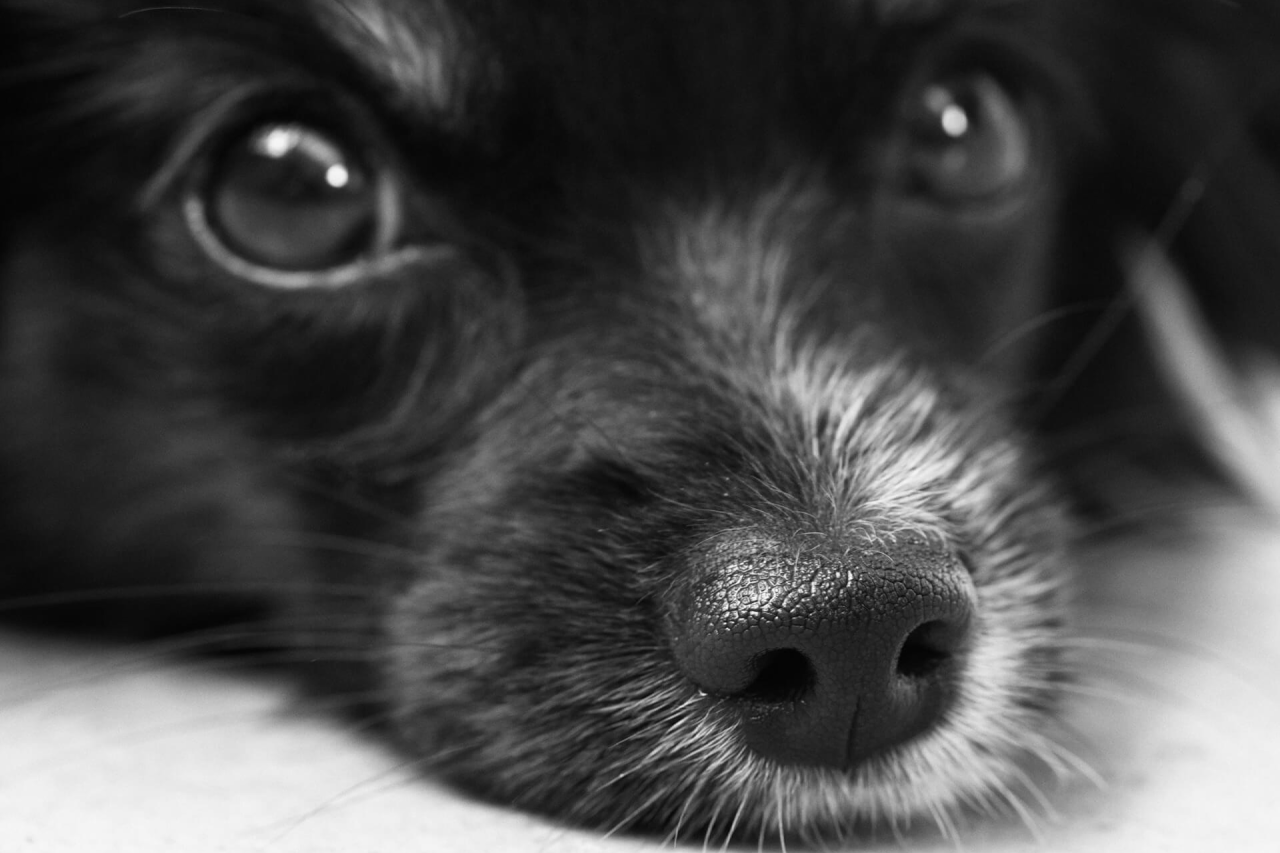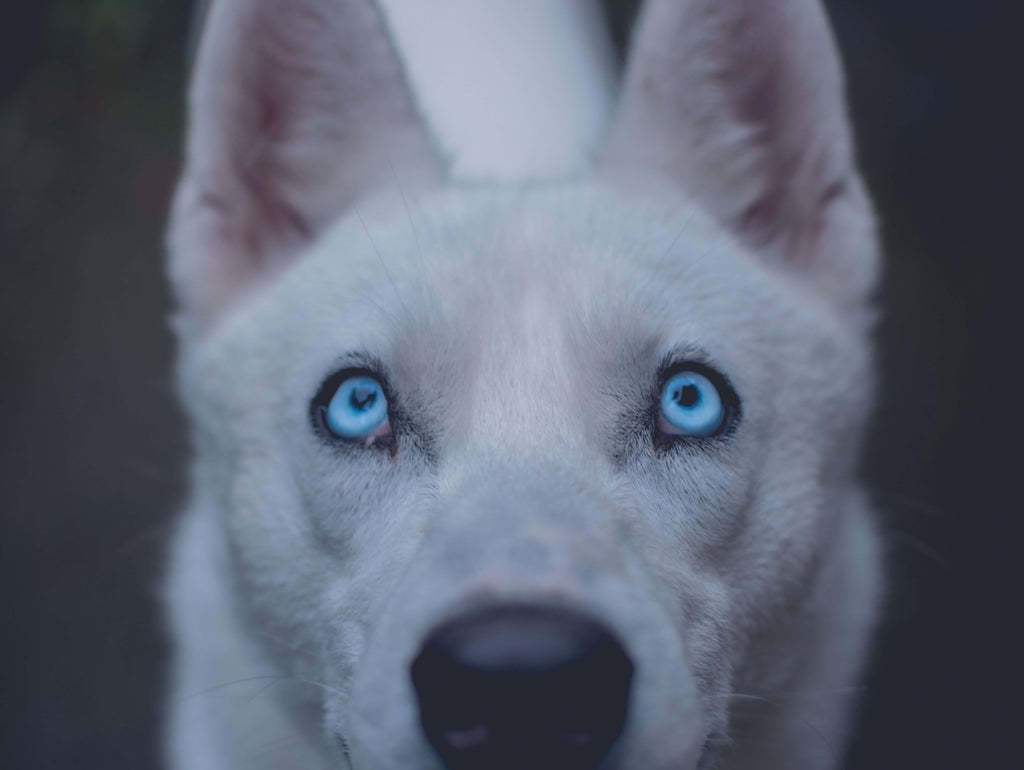
Dog Eye Boogers: The Causes and Treatment of Dog Eye Discharge
Key Takeaways
-
Occasional clear eye discharge in dogs is normal, but yellow or greenish boogers may signal infection.
-
Common causes include allergies, irritation, conjunctivitis, dry eye, or blocked tear ducts.
-
Flat-faced breeds (like bulldogs) and dogs with loose facial skin are more prone to eye issues.
-
Watch for redness, swelling, excessive tearing, or pawing at the eyes—these require a vet visit.
-
Clean eye boogers gently with a warm, damp cloth, but avoid home remedies without veterinary advice.
-
Persistent or worsening discharge should always be checked by a vet to rule out serious conditions.
If you're a dog owner, you're probably familiar with the infamous “eye boogers” that your pooch may have on occasion.
This icky issue is more than just unattractive (and, honestly, it can be a bit gross). Excessive and discolored eye discharge is often a potential sign of an underlying medical problem.
Read on to learn more about the causes of dog eye discharge and what you can do about it to make your furry friend more comfortable.
Causes of Dog Eye Discharge
There can be several reasons why your pooch is suffering from those nasty eye boogers. In most cases, it's likely caused by allergies or irritation. If your dog has dust or debris in his eyes, or the wind has been blowing in his face for a while (car rides!), it might just be why he's displaying a clear-colored eye discharge.
Yellow or greenish dog eye boogers can be caused by a foreign object irritating the conjunctiva or even getting stuck in the eye, such as an eyelash. When this happens, the eyes produce a pus-like discharge, but this could also mean that there's an infection present. If the eye boogers don't go away, don’t delay: it's time to take your pal to the vet for further investigation.
Canine Conjunctivitis
If your dog seems to have mucus, pus, or a water discharge in the eyes, it could be a result of conjunctivitis, which is inflammation in the lining of the eye. There can be a wide range of causes for conjunctivitis including problems with the tear ducts, allergies, injury, and even birth defects.
Other possible causes of dog conjunctivitis include dry eye or even a possible tumor. The most common signs include red eyes, inflammation, crusty eyes, or your dog seems to be blinking a lot and pawing at his eyes frequently.
Your vet will determine if your dog has conjunctivitis and may prescribe antibiotics and a saline wash to manage the infection. If there are duct problems or birth defects present, your pooch might need to undergo surgery. If it's allergies, expect your pooch to be given a doggy anti-inflammatory or other medication.
Epiphora (AKA Excessive Tearing of the Eyes)
You may notice that the dog eye discharge you see is watery (clear) and teary, but that it results in smelly fur, staining, or even a skin infection. This could be a result of inflammation, allergies, or corneal ulcers and tumors. Some breeds have imperfect tear ducts, causing the tears to run down the face, resulting in staining.
To treat excessive tearing, also known as epiphora, your vet will need to determine what's causing the problem first. They'll likely give your pooch some topical antibiotics or steroids if the tear ducts appear to be inflamed.
If the dog has any damage to his cornea, topical treatment will also be recommended. However, if there is any duct obstruction, your pup might need surgery to correct the problem.
Dry Eye For Dogs
Many humans deal with dry eyes, and it's something your dog might be suffering from as well. When your pooch has keratoconjunctivitis sicca (KCS) or “dry eye,” he cannot produce enough tears which result in excess mucus and inflammation. If his eyes are infected, it can be quite painful and his eyes may appear to be inflamed.
When it comes to dogs, infection as a result of dry eye is quite common, so pay close attention to your dog's eyes and his behavior. See your vet right away if his symptoms get worse, he stops eating, or the eyes become extremely red and appear to be irritated.
In most instances, your vet will prescribe artificial tears for your dog to give him some relief. If there's an infection present, the vet may prescribe a stronger medication to help fight it.
Other Possible Causes of Dog Eye Boogers
Conjunctivitis, epiphora, and dry eye are quite common causes of dog eye discharge. However, there are a few other things that could be causing your pooch to have eye-related issues.
Some dogs may have glaucoma, an eye condition caused when there is too much pressure in the eyes. A bulging eye, cloudy eyes, or a bit of tearing may indicate he has glaucoma and if so, medication and possibly surgery are usually recommended.
Many flat-faced dogs like boxers, bugs, and bulldogs are more prone to dog eye discharge since they have shallow eye sockets, and their eyes tend to protrude. These breeds can also suffer from tear drainage problems or they may have eyelids that roll inward, creating boogers and discharge.
Other breeds with a lot of loose facial skin like bloodhounds, beagles, and Saint Bernards also tend to have problems with their eyes. In these breeds, the eyelids tend to roll outward which can cause serious issues and may even require surgery in some dogs.
If you're dealing with ongoing dog eye boogers and discharge, talk to your veterinarian as soon as possible. It may be something simple like irritation, but it could also be much more serious like a foreign body, infection, tumor, or a chronic condition that needs immediate treatment.
Observe your dog's behavior closely since they'll often tell you something is wrong simply by acting differently. If your pooch seems skittish, nervous, or unhappy in general, it's probably time for a vet visit just so they can help you determine what's causing the issue.

Those are some beautiful eyes!
How To Get Rid of Dog Eye Boogers
As a dog owner, there's no doubt that you want your best friend to be happy and healthy. While you can't always prevent dog eye discharge, there are a few things you can do to be proactive and help keep it at bay.
Observe and monitor your dog's eyes regularly and make sure that both pupils are the same size. His eyes should be bright, free of crust or another buildup, and they should have a bright white sclera with no discoloration. Make sure there is no excess tearing or that your dog isn't squinting a lot, and his inner eyelids should never be swollen or visible.
If you want to check on your dog's eyes further, gently pull down his lower eyelids and make sure that they appear pink and not red or white in color. If you notice any kind of discharge, cloudiness, a third eyelid, squinty eyes, or tear-stained fur, it's time for a visit to the veterinarian.
Do your best to keep long hair or fur out of your dog's eyes. Take him to the groomer regularly, or you can use round-tipped scissors to trim the hair back to keep his eyes and his body healthy.
Avoid using irritating products like certain shampoos, soaps, or flea medicine that could possibly get into his eyes. If your dog is pawing or rubbing his eyes, call your vet right away for advice and help.
Applying Eye Medication for Dogs
If your dog is prescribed a topical eye medication, getting it applied correctly might be a little tricky. Make sure you have the medication nearby before you start, and begin by cleaning any extra dog eye discharge around the eyes using lukewarm water and a soft cotton pad or cotton ball.
Tilt your pup's head back slightly and rest your hand on his head so you don't accidentally hit the eyes with the dropper if he happens to squirm. Gently squeeze the eye drop applicator and add a few drops into the upper part of his eyes.
If you need to apply eye ointment, start by gently pulling your dog's lower lid down to create a pocket for the ointment. Use the same technique to rest your hand on his head in case he moves, and then squeeze a small ribbon, about a one-quarter inch strip, of the eye ointment into the eyes.
You can help spread eye drops and ointment evenly by gently opening and closing his eyelids for a few seconds. If your dog is nervous, make sure you talk to him in a soft, soothing voice. It might take a few practices runs before you can do this successfully, so patience is the key!
Pay very close attention to any dog eye discharge you see. If it's a greenish or yellow color, you should take him to the vet right away, as this is usually an indication of an infection that could lead to a more serious condition if treatment is delayed.
Should You Leave Dog Eye Boogers Alone?
If your dog experiences eye boogers then it can be helpful if you clean it on a routine basis. It is normal for dogs to experience the occasional eye booger, but it is always important to watch for signs of eye irritation. The most common signs of eye irritation in dogs are excessive discharge build-up, red eyes, swollen eyes, and excessively watery eyes. If your dog gets the occasional eye booger but doesn't show any of the above symptoms and doesn't have any signs of distress then you can clean the boogers away and monitor your dog moving forward.
Why Does My Dog Have So Many Eye Boogers?
Many dogs will have a small number of eye boogers or discharge, but if you are seeing large amounts of discharge or consistent boogers then it could be the sign of an issue. This issue could range from allergies or a more extensive eye issue. It is important to talk with your veterinarian if you see a large number of eye boogers or signs of irritation or discomfort for your dog.
How To Clean Away Dog Eye Boogers
If your dog has eye boogers it can be beneficial to clean them away. But it is important to do this in a safe manner in order to not make it worse. Your veterinarian will be able to recommend a good eyewash for dogs depending on the severity of your dog's eye irritation. This wash will be used to help remove allergens or other debris from the eyes of your dog. You can also use a soft towel that is water with warm water to gently wipe away boogers and discharge from your dog's eyes.
Clear Eyes, Happy Dog
Dog eye discharge is common, but it's important to know exactly what is causing your furry friend's eyes to be filled with boogers. Once you determine the reason for the eye discharge, you can take proactive steps to treat it so your dog can see clearly and be happy once again.
Always consult with your vet whenever you're concerned about the health of your dog so they can help you take steps to ensure he has a better, healthier life.
Did you know that some allergies are caused by animal-based protein in food? Find out how Wild Earth dog food can make a difference.




























